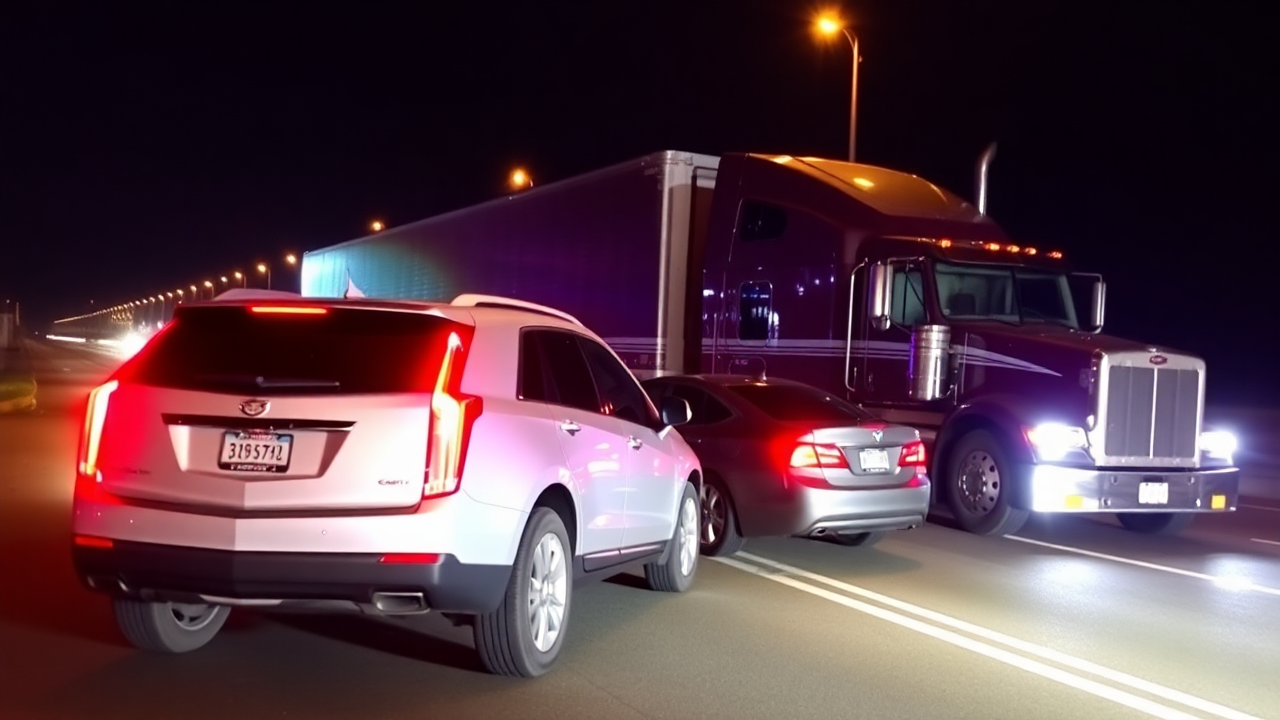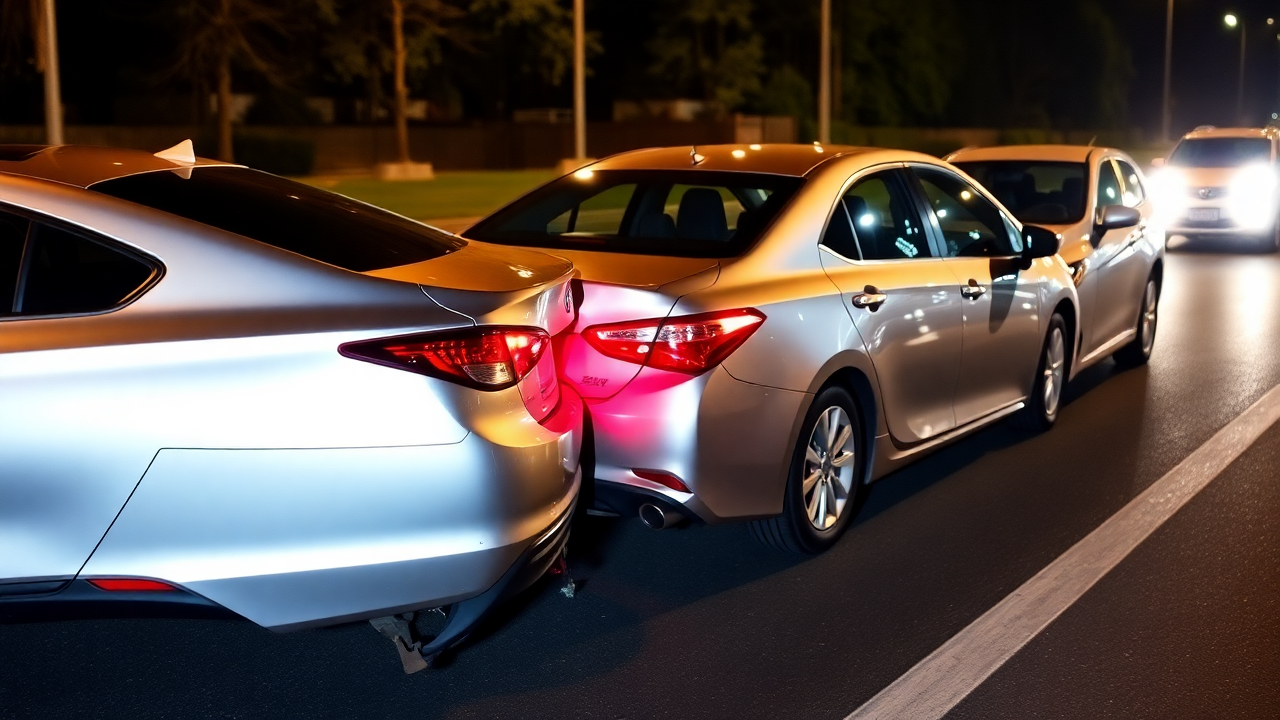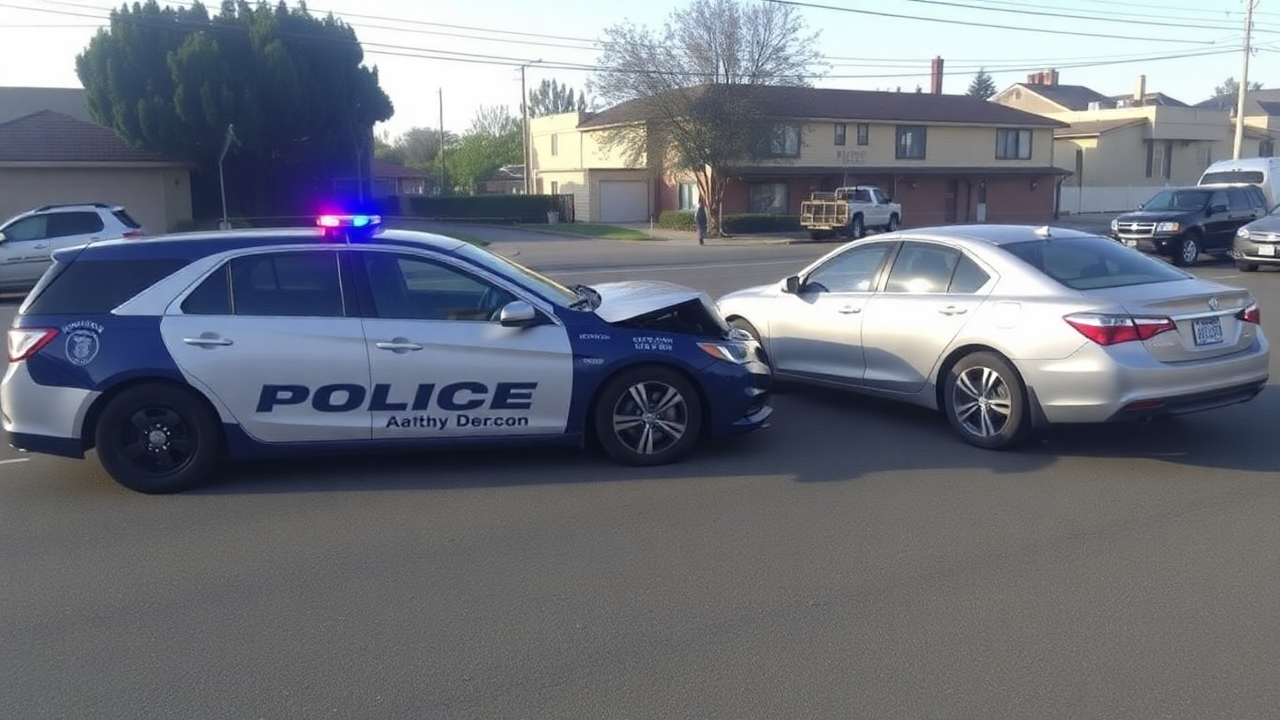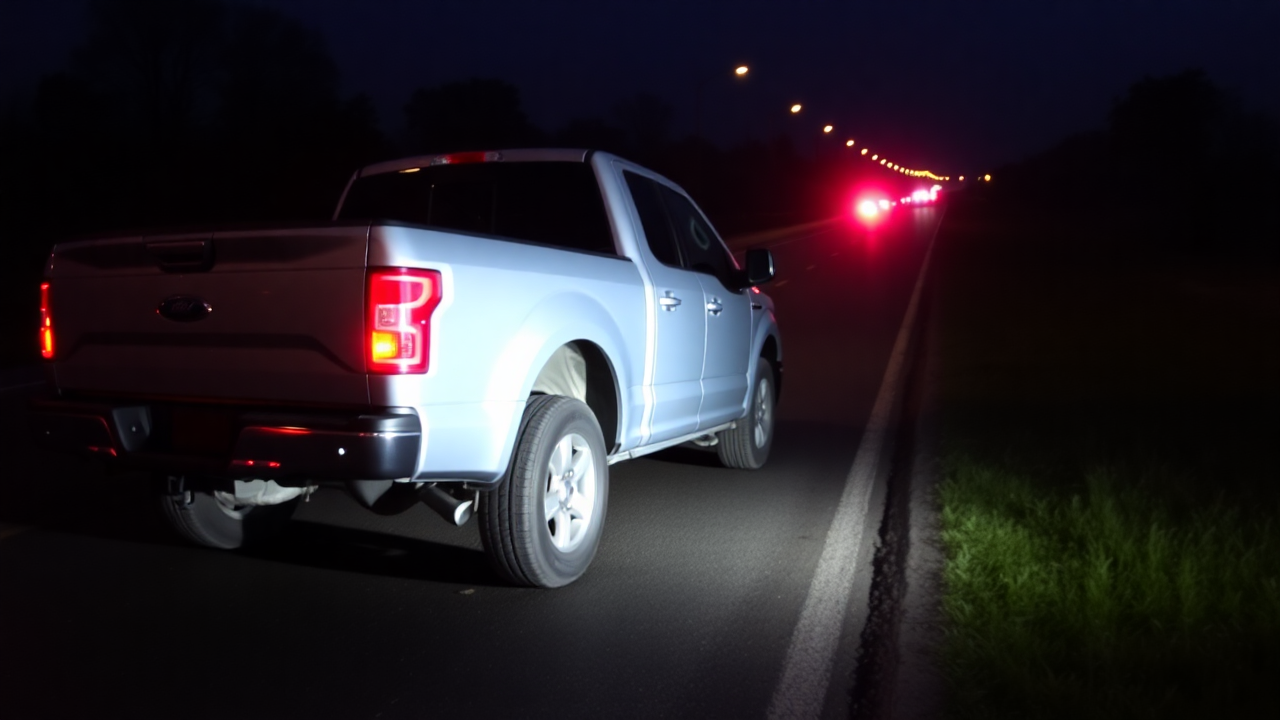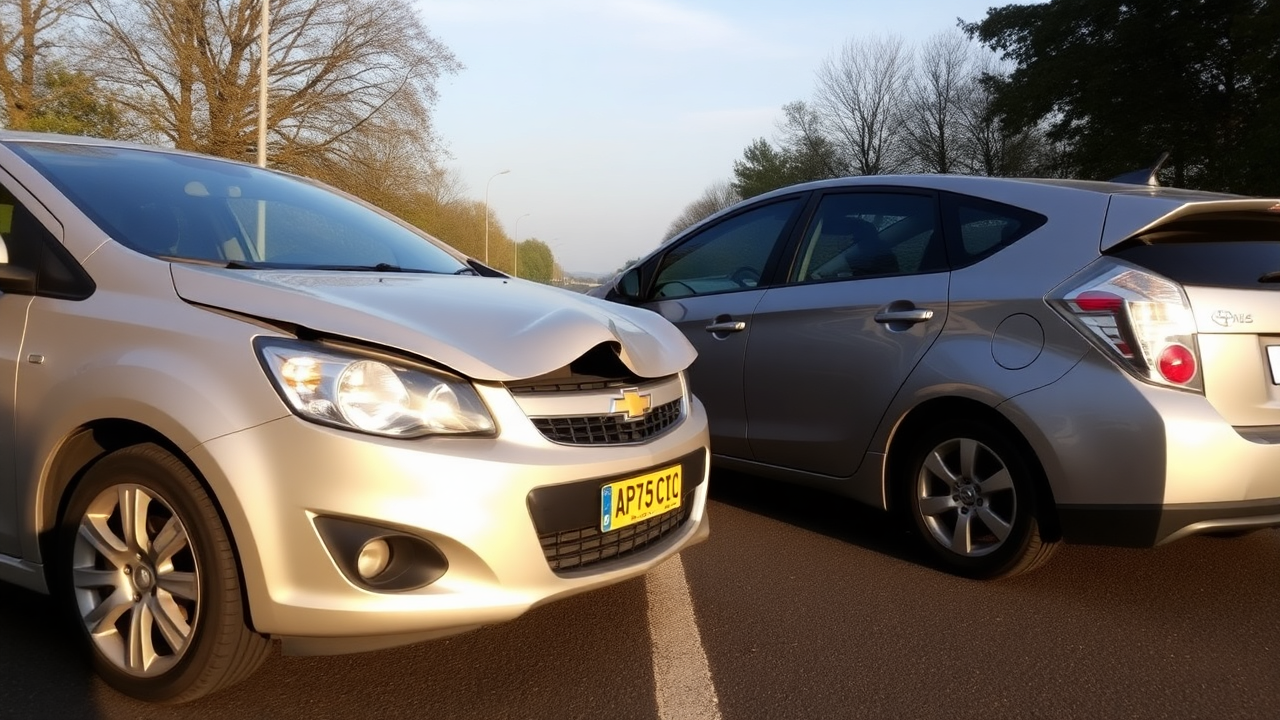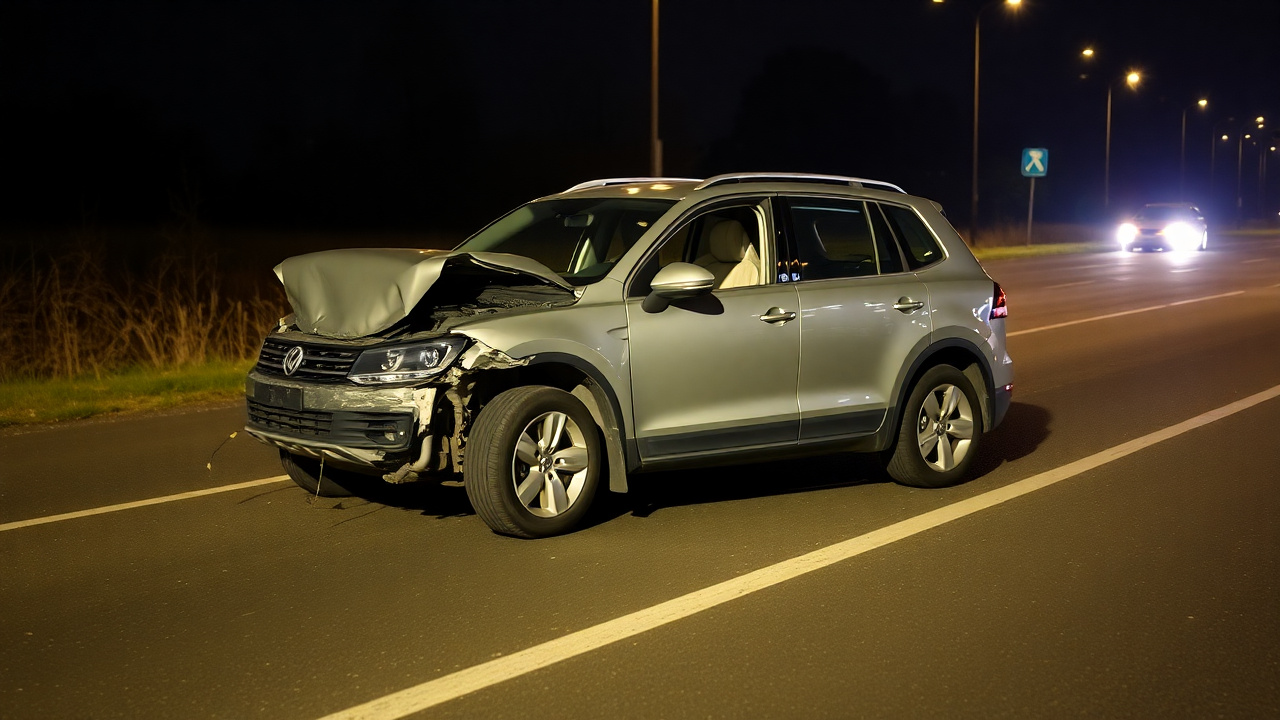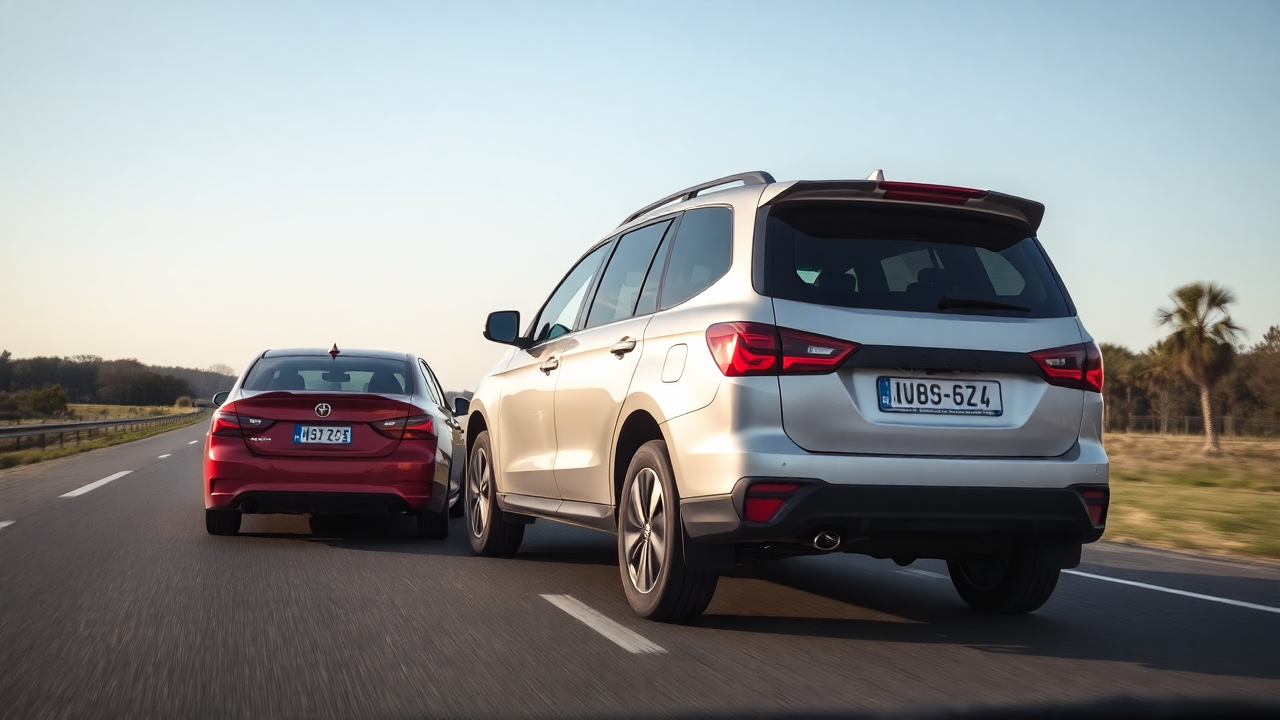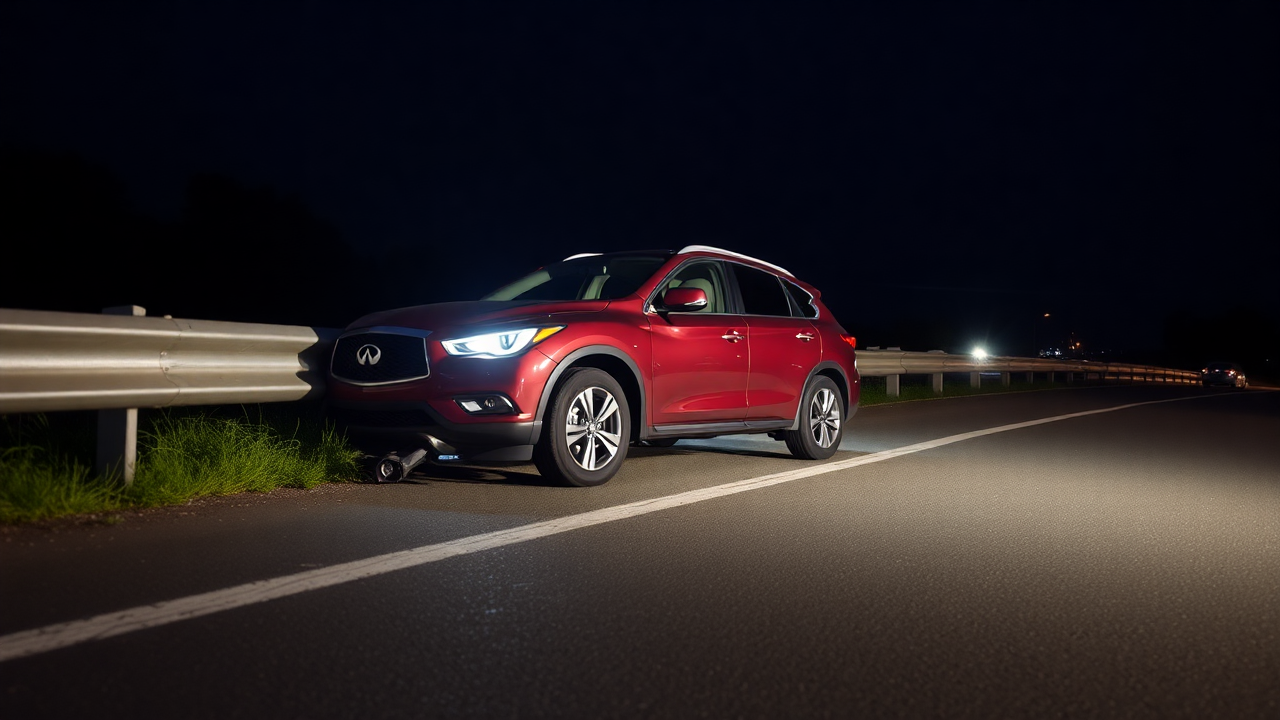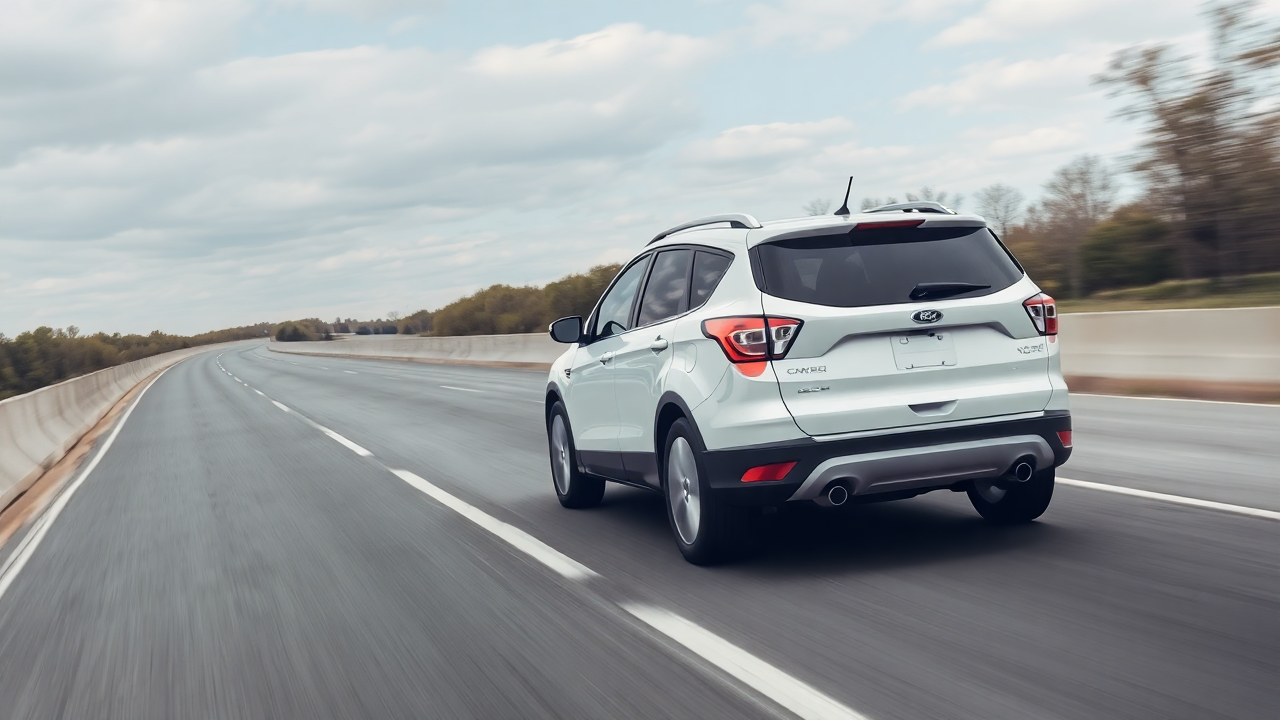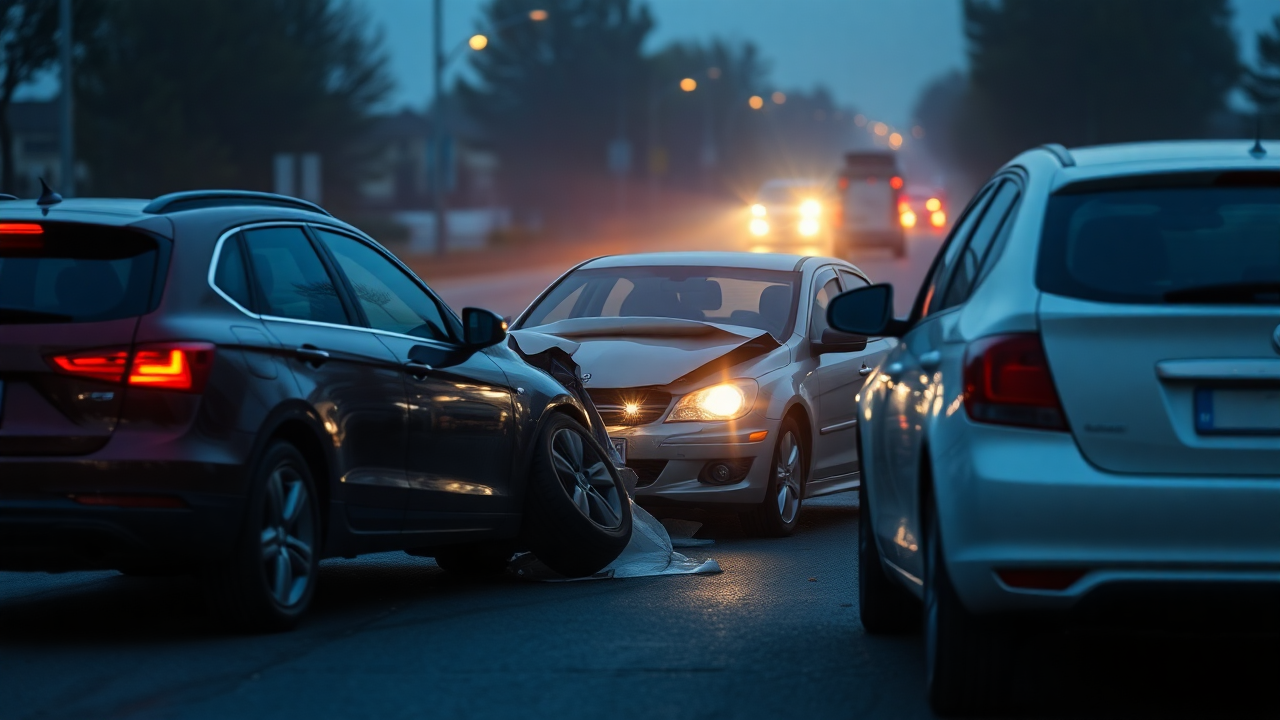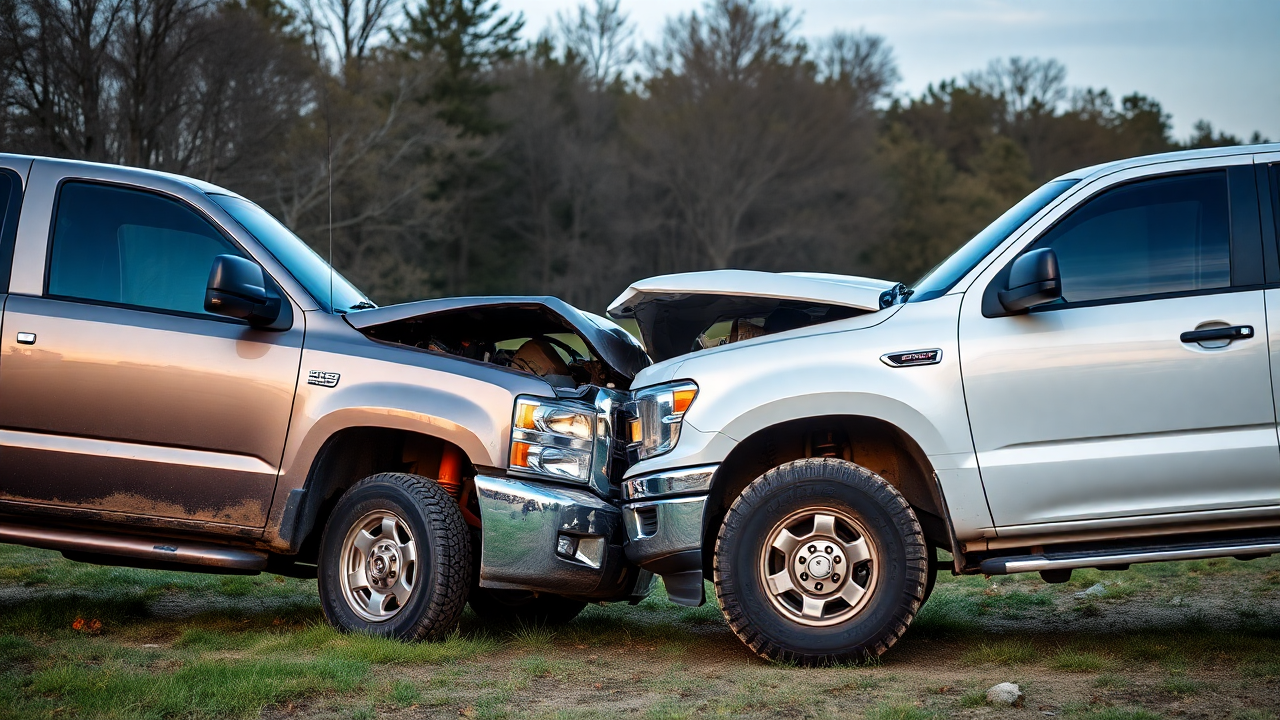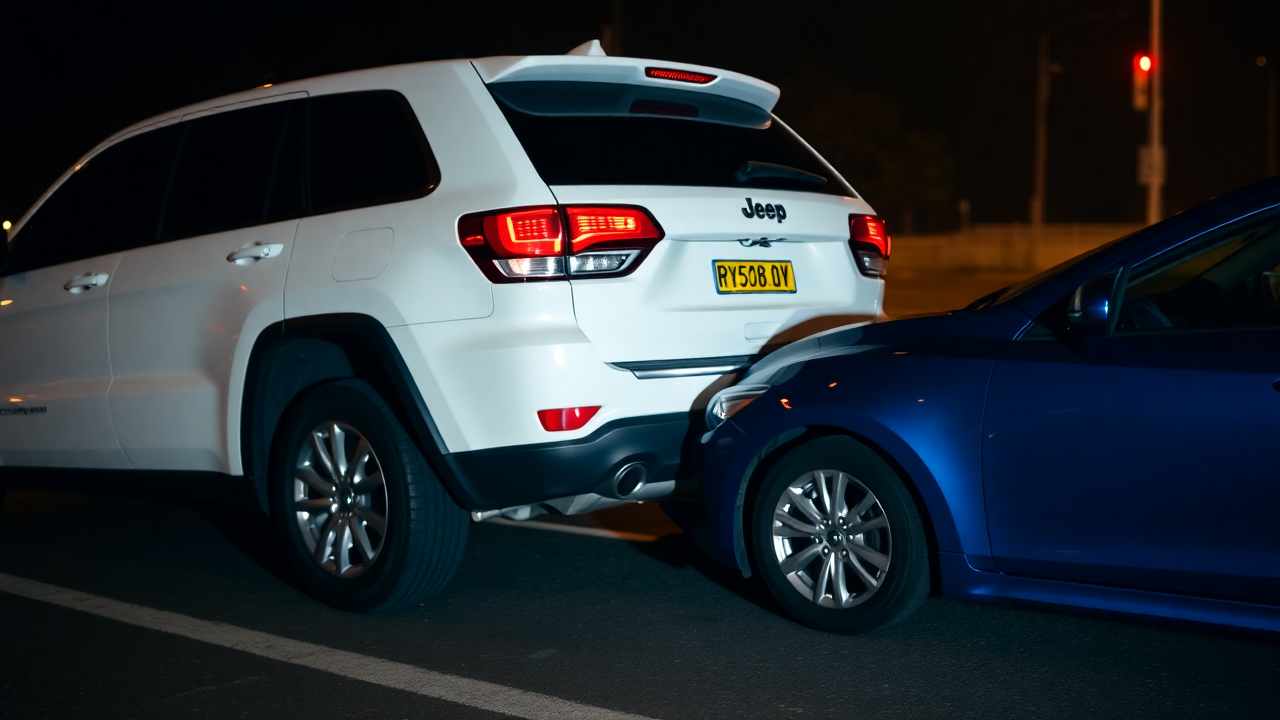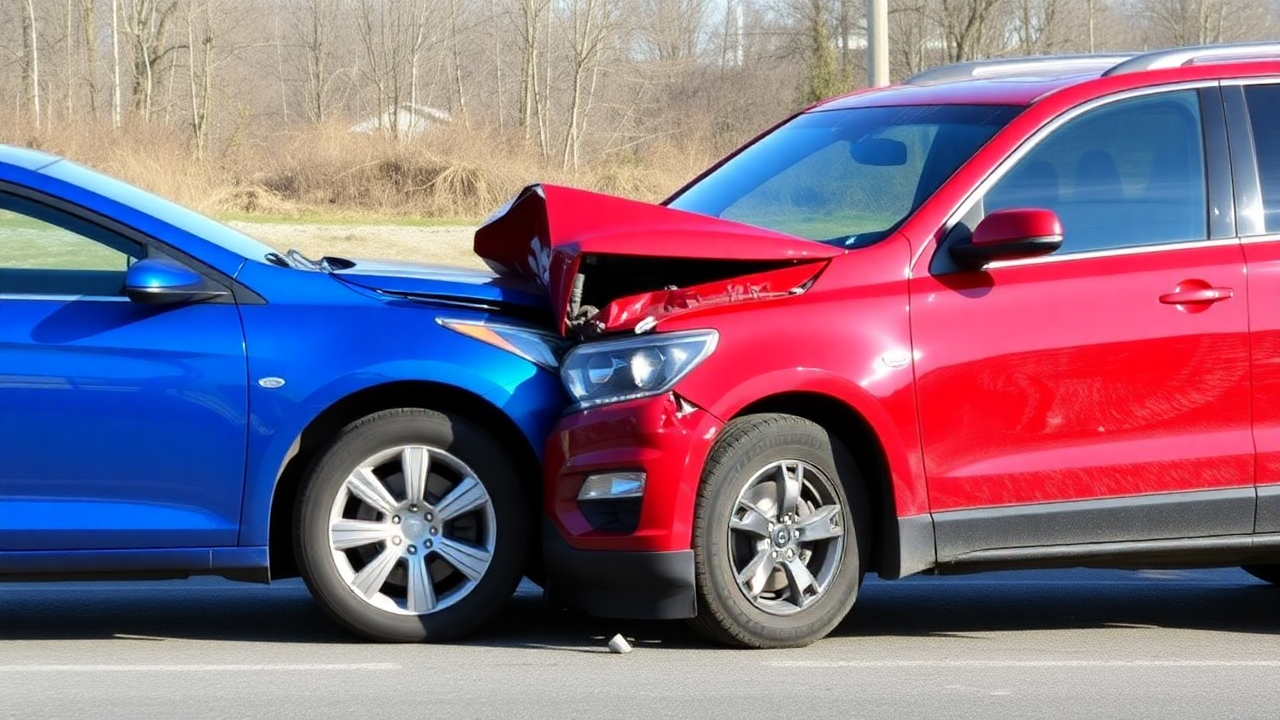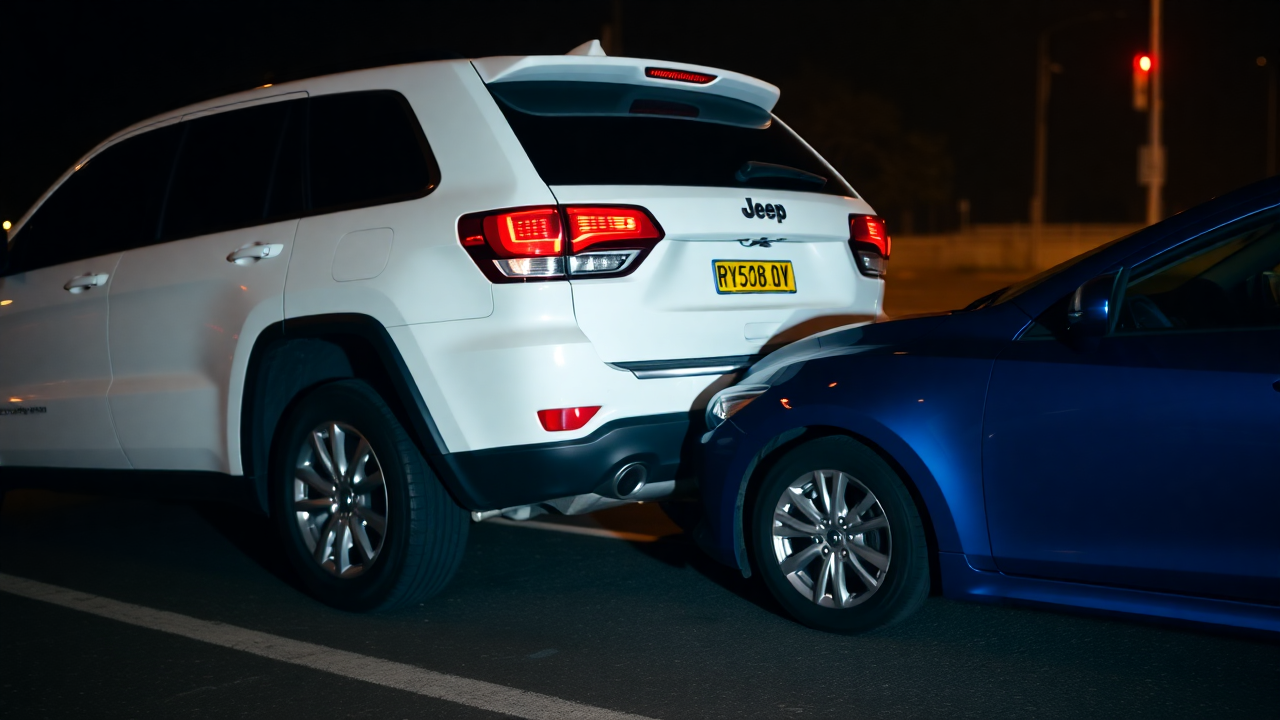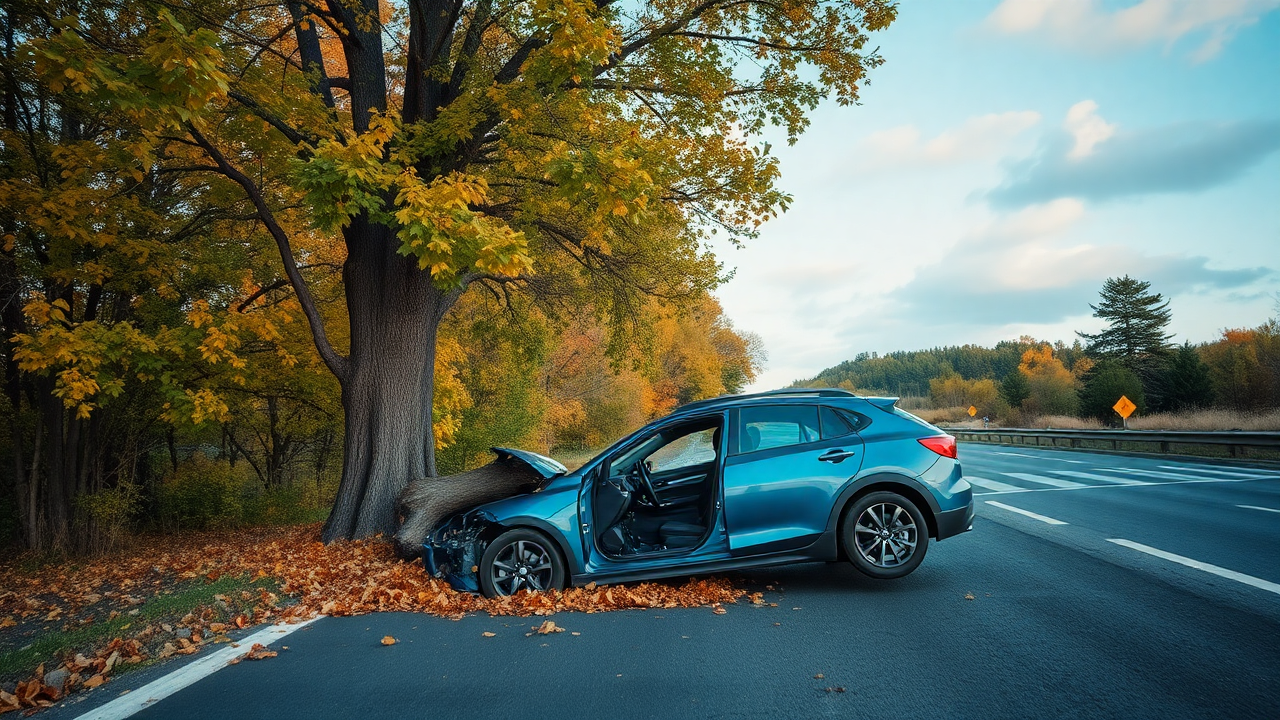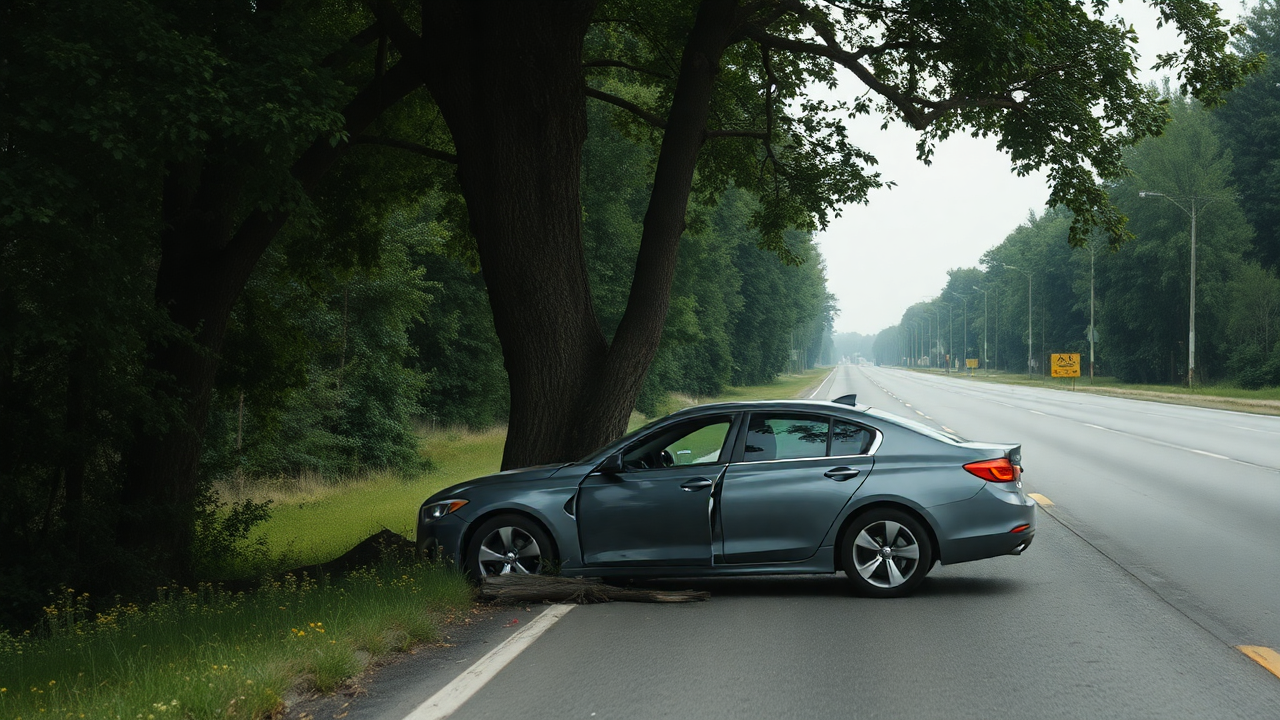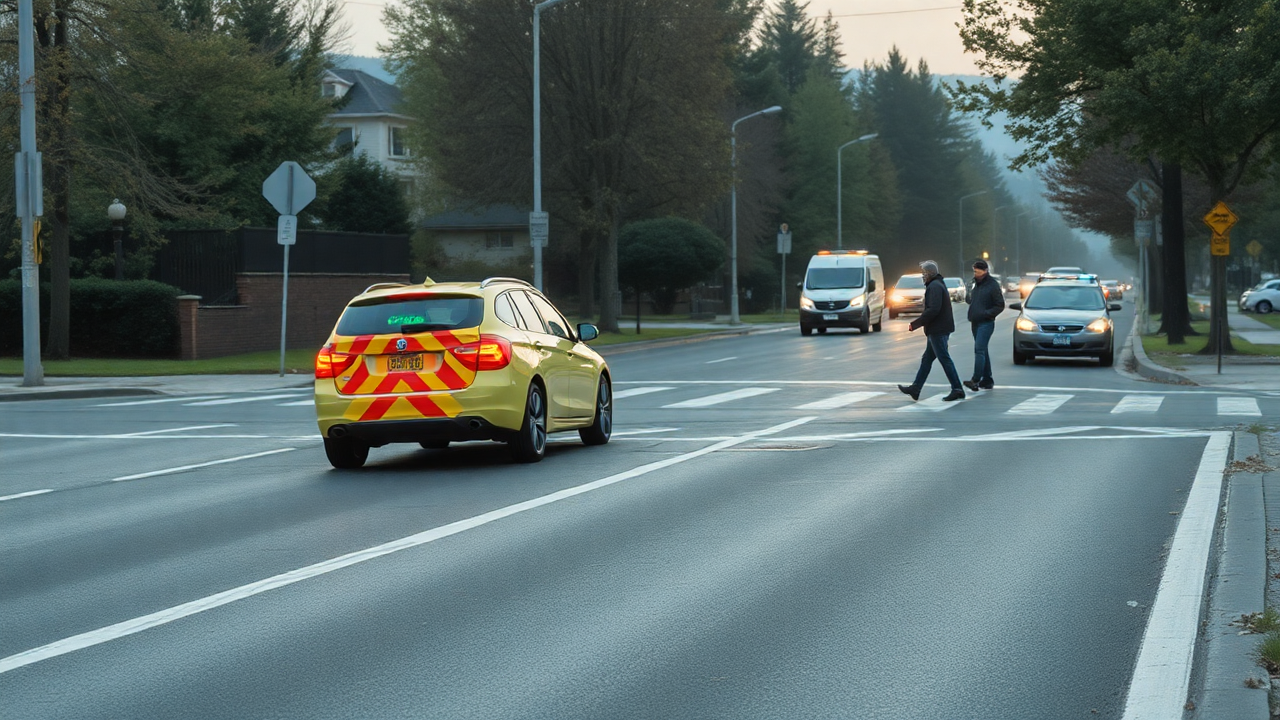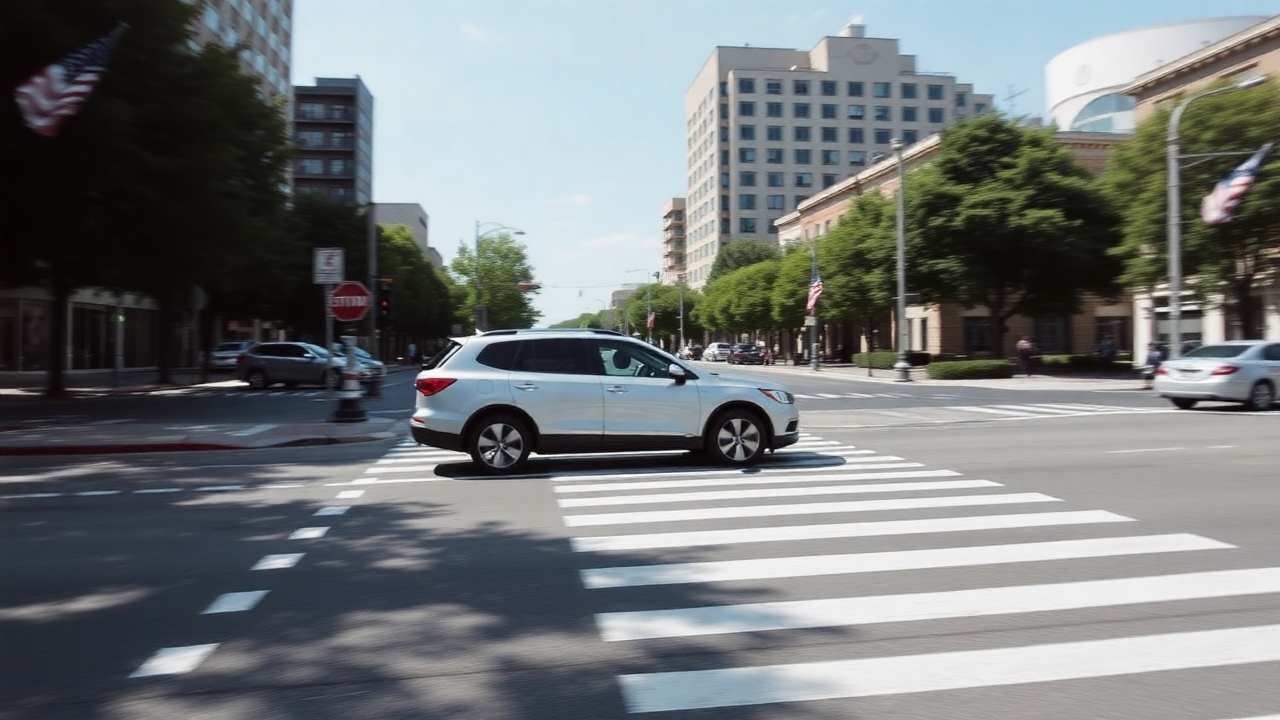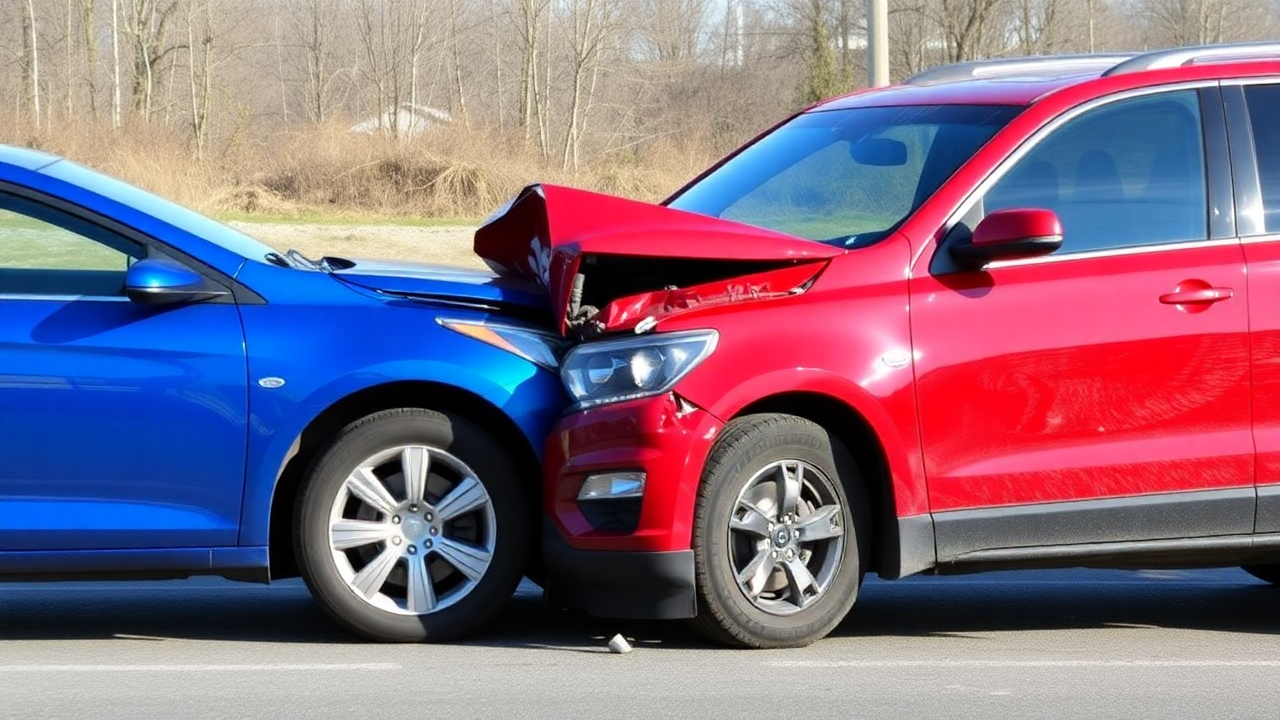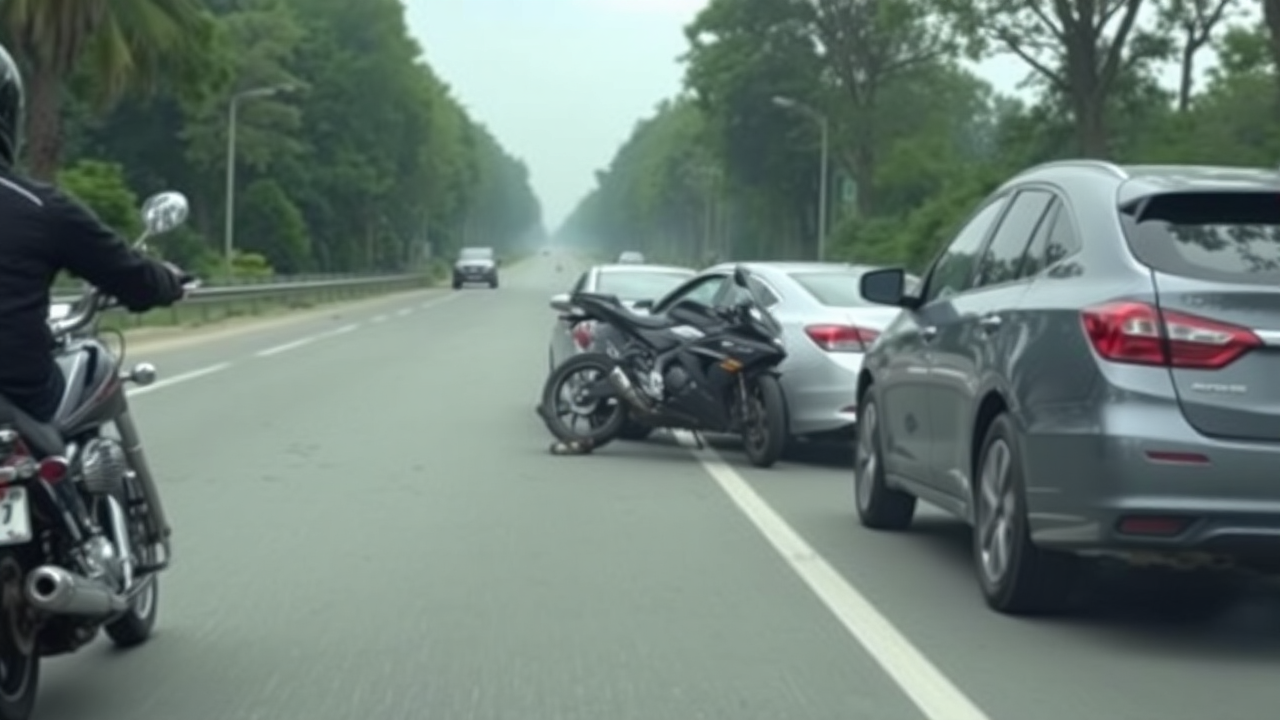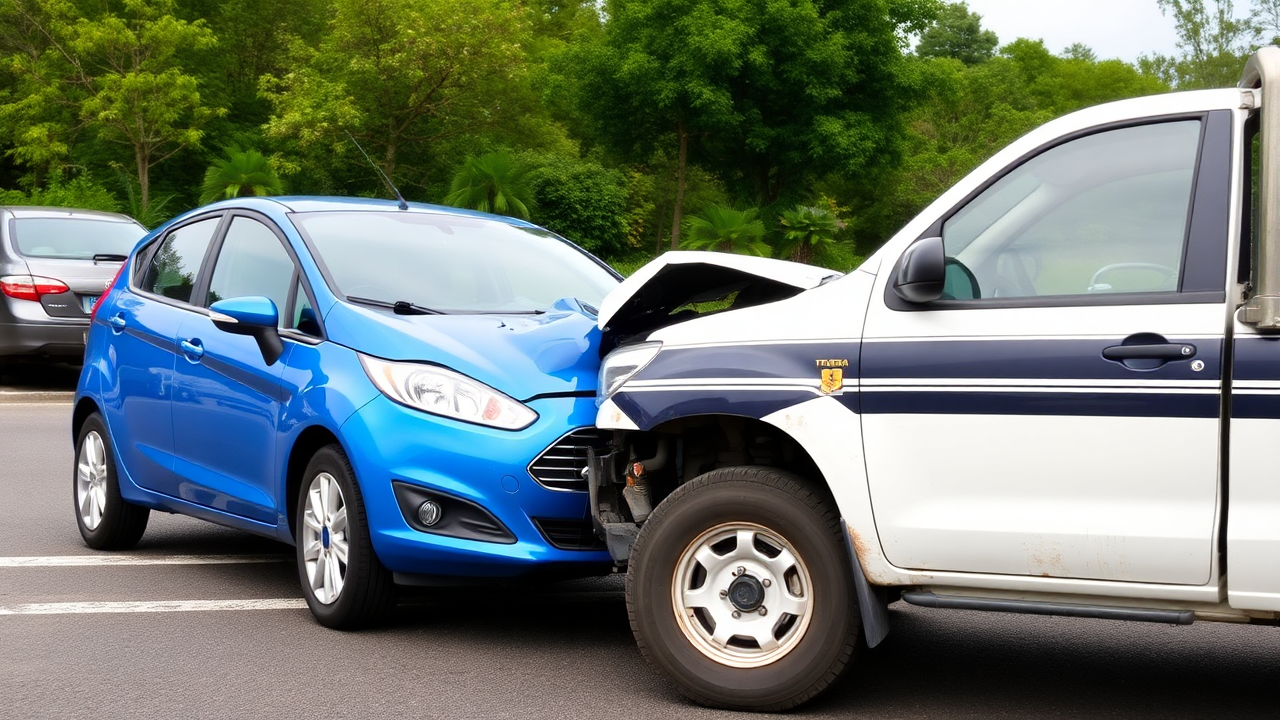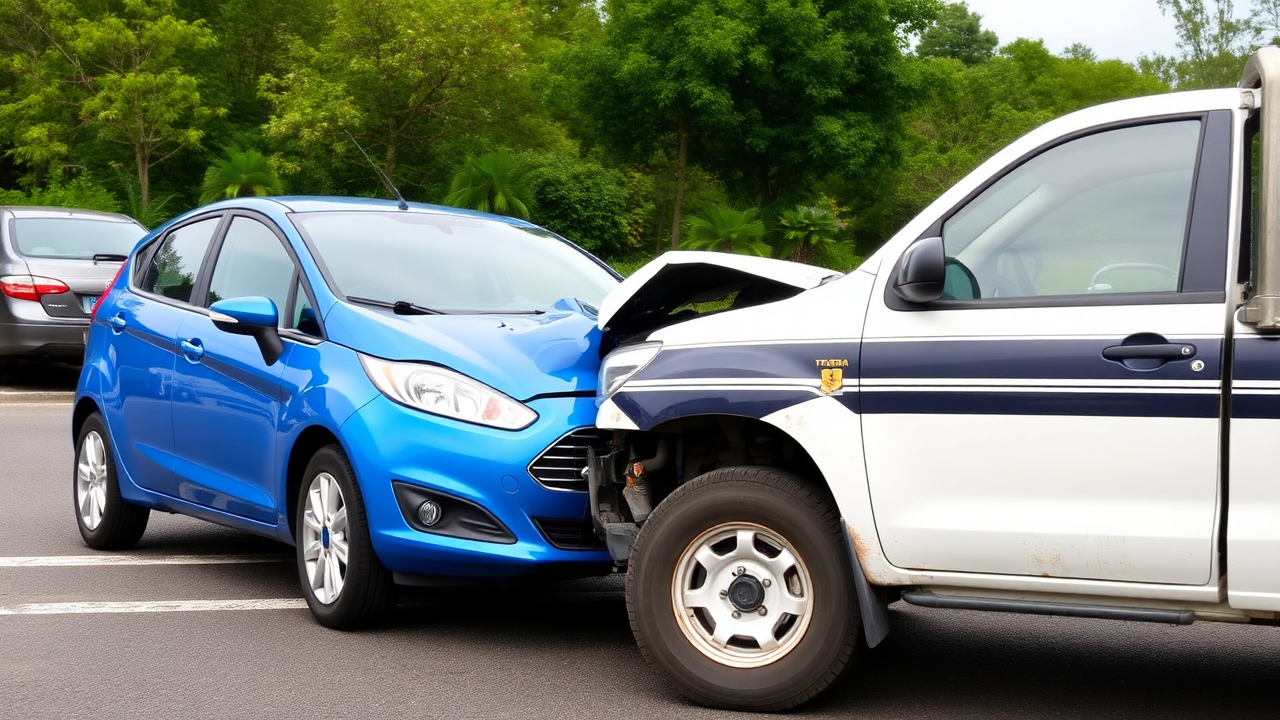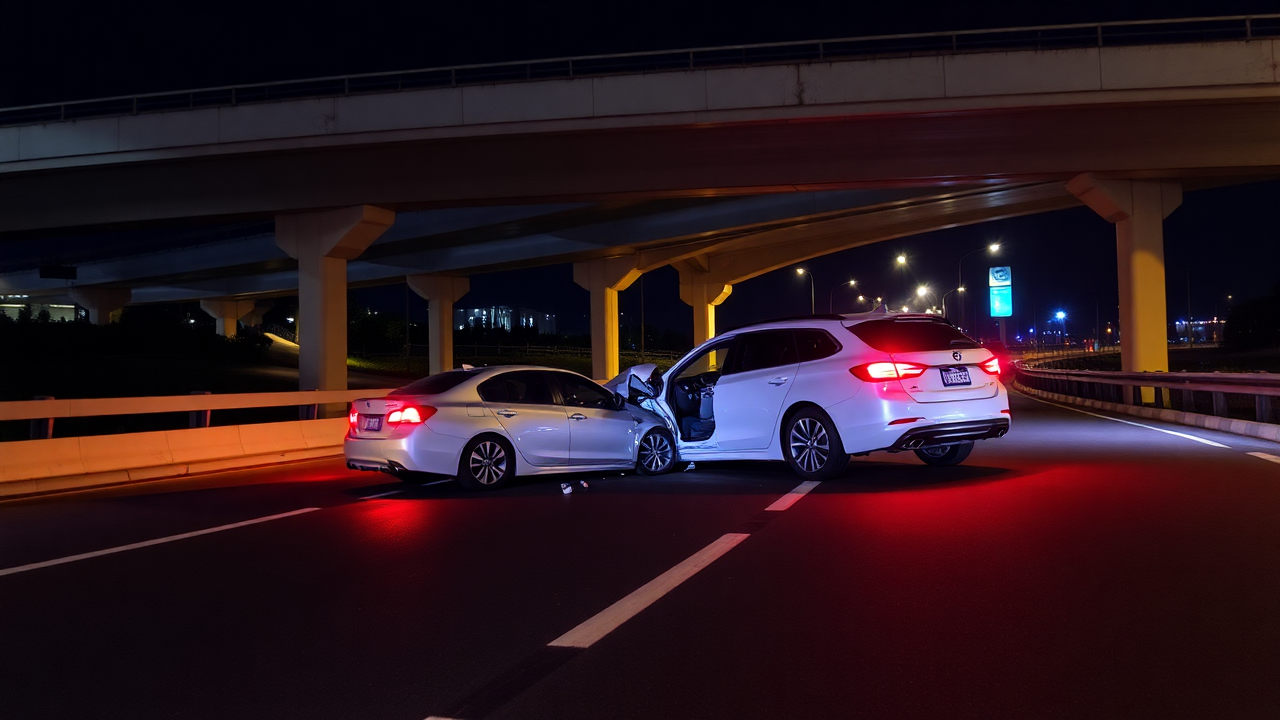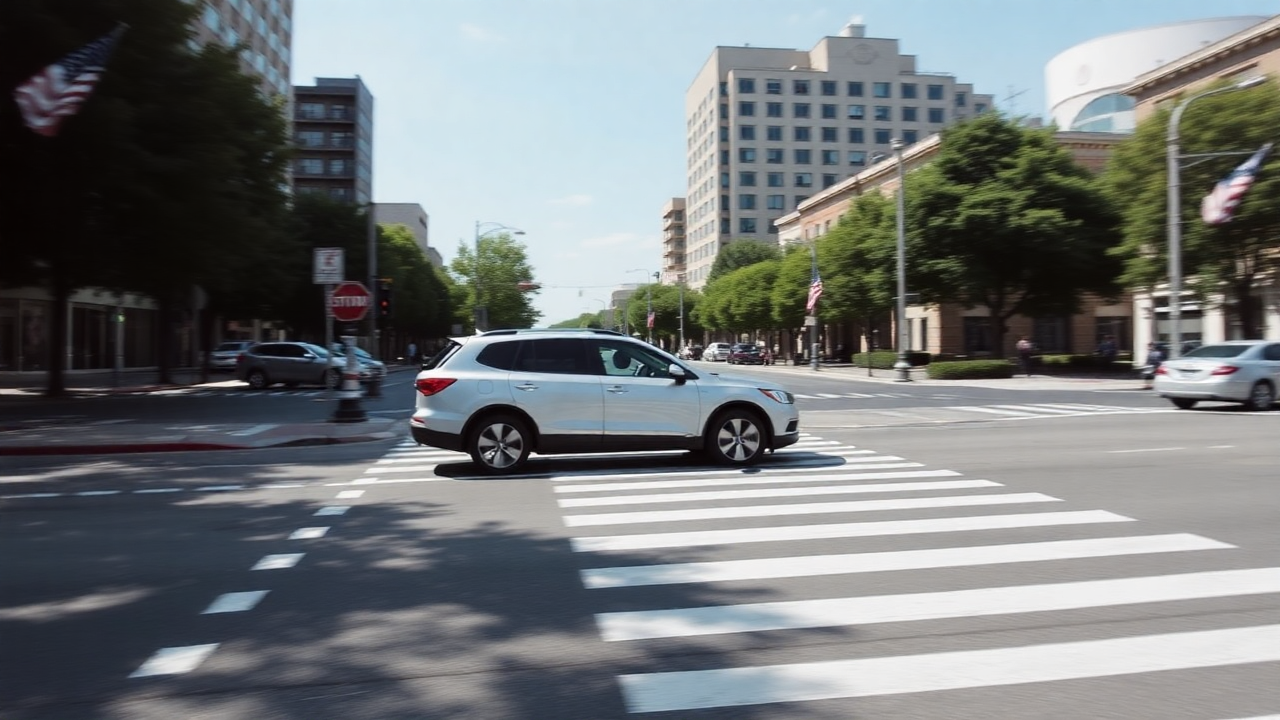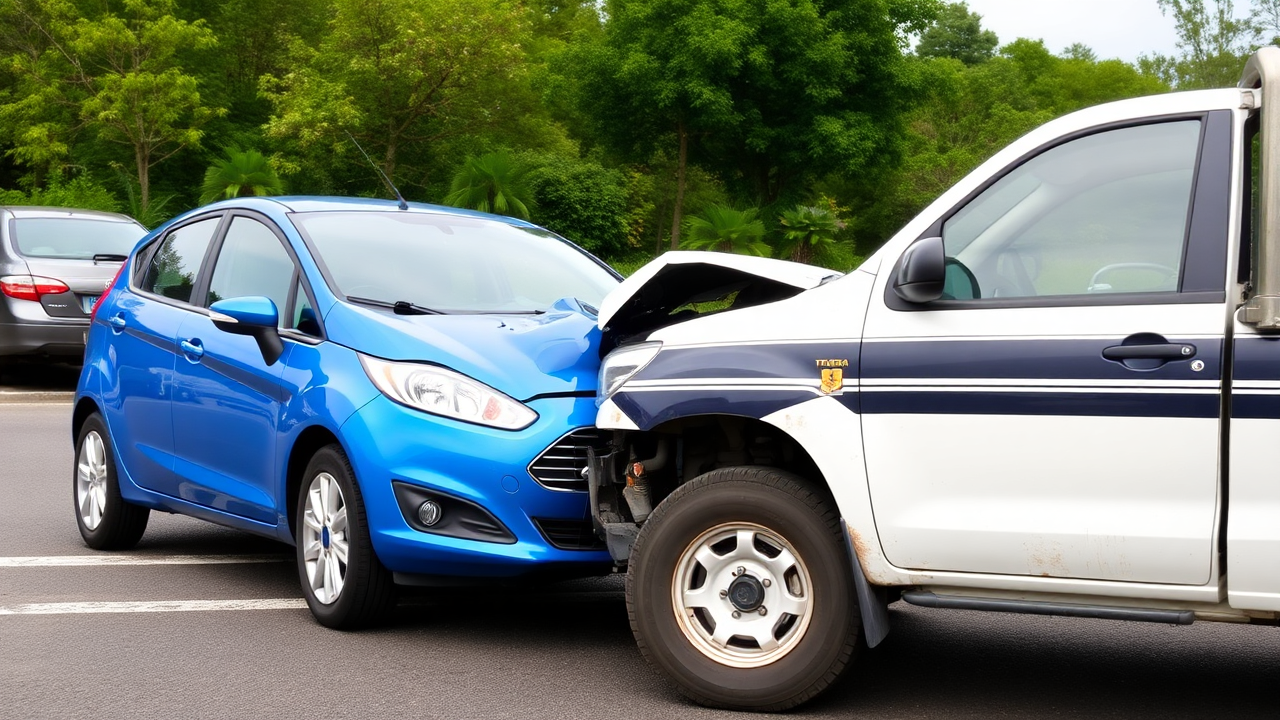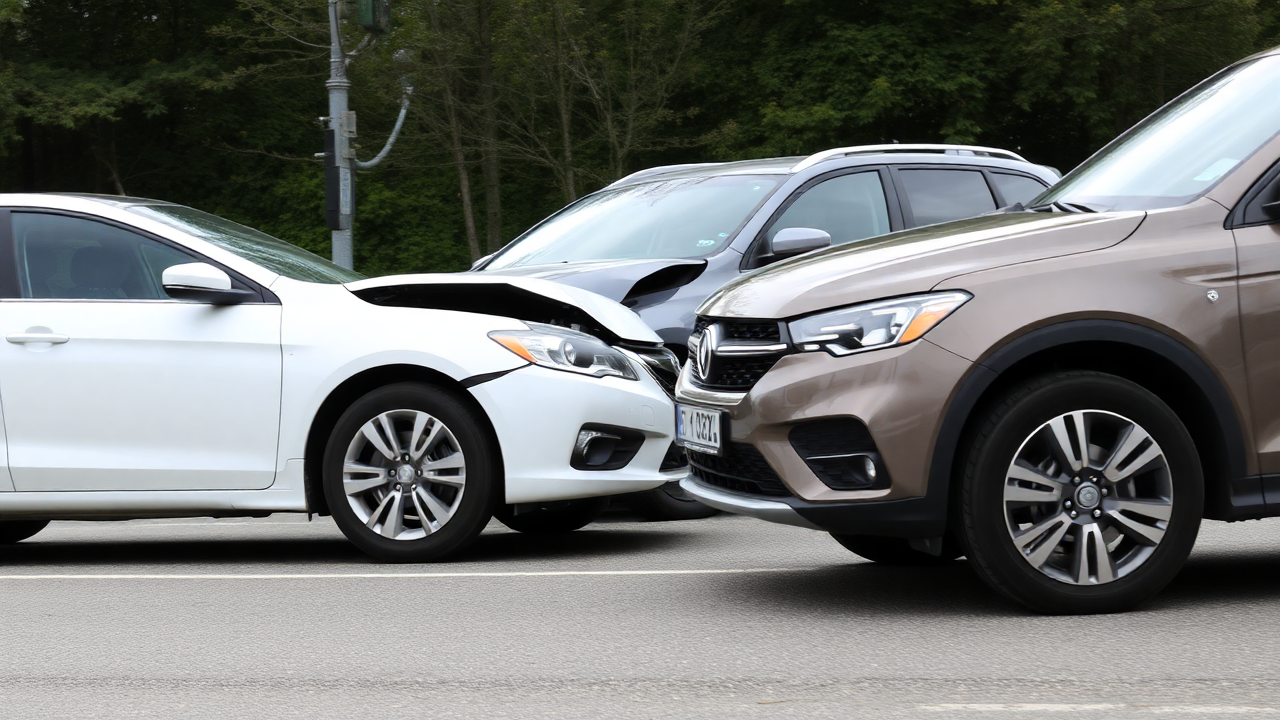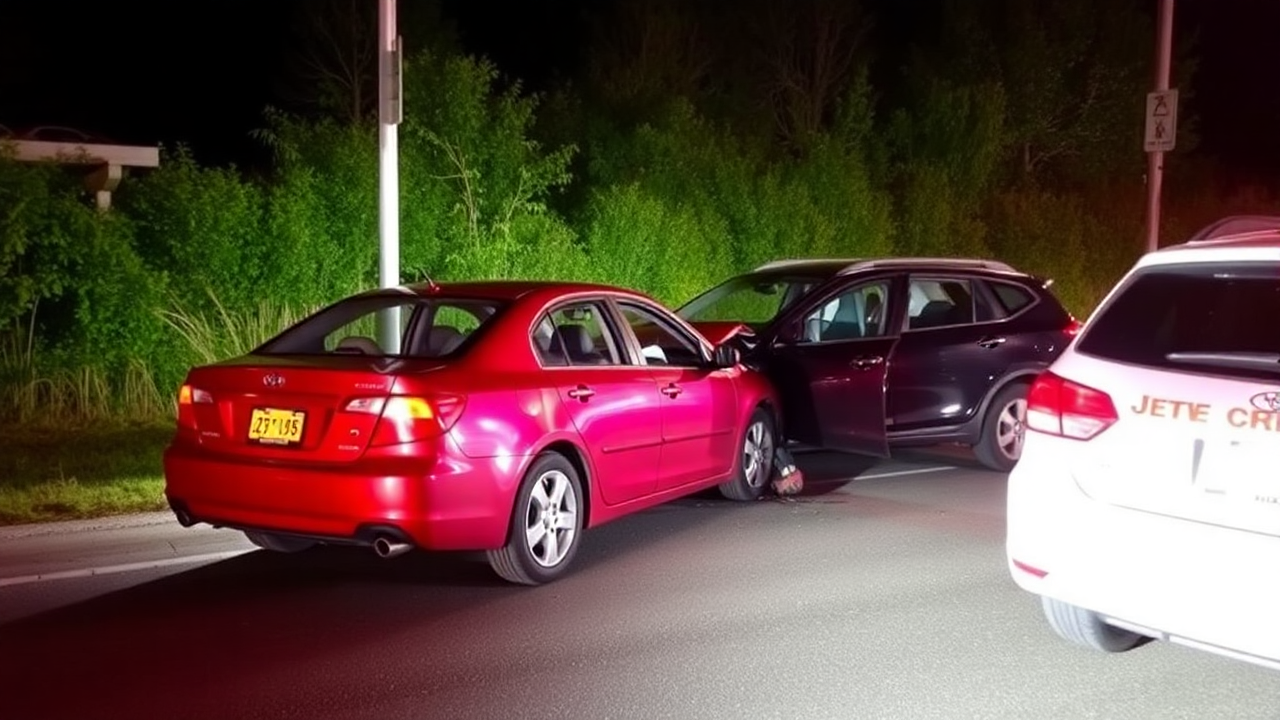Three-Vehicle Collision on I-5 Near Hilltop Drive in Redding Sends Two to Hospital
A serious three-vehicle collision involving a semi-truck rollover on Interstate 5 near Hilltop Drive in Redding has resulted in two people being hospitalized with moderate to major injuries. The... Read More
Fatal Hit-and-Run Bicycle Accident in San Joaquin County
In a devastating incident on Monday, May 5, 2025, a 56-year-old bicyclist lost his life following a hit-and-run bicycle accident collision in San Joaquin County. The California Highway Patrol... Read More
Fatal Pedestrian Accident Outside Hanford: Legal Implications and Safety Concerns
A fatal pedestrian accident occurred early Sunday morning outside of Hanford in Kings County, California. According to the California Highway Patrol (CHP), the incident happened just before 5 a.m.... Read More
Tragic Pedestrian Fatality in Fresno Highlights Road Safety Concerns for Vulnerable Populations
A pedestrian fatality occurred late Saturday night in Fresno, adding to the city’s concerning statistics regarding traffic safety. The collision, which claimed the life of an individual believed to... Read More
Two-Vehicle Collision Disrupts Traffic at I-80 and I-580 Connector in Oakland
A two-vehicle collision temporarily halted traffic Sunday morning at the eastbound Interstate 80 and I-580 East Connector in Oakland. The California Highway Patrol (CHP) responded to the scene where... Read More
Fatal Motorcycle and Truck Accident at 8th and Howard Streets Leaves Rider with Life-Threatening Injuries
A fatal motorcycle and truck accident at a busy San Francisco intersection has left one person critically injured. The incident, which occurred Saturday evening, prompted a significant emergency response... Read More
Fatal 4-Vehicle Chain Reaction Collision on Bay Bridge: Understanding Causes and Consequences
A recent tragedy on the San Francisco-Oakland Bay Bridge has highlighted the dangers of high-speed driving and the devastating chain reactions that can occur in heavy traffic. Late Friday... Read More
Semi-Truck Accident on Highway 395 Leaves Driver Critically Injured
A devastating collision between a white Nissan sedan and a semi-truck on Highway 395 in Victorville has left one driver with critical injuries. The semi-truck accident occurred on Friday,... Read More
Fatal Pedestrian and Dog Accident in SoMa Intersection Highlights San Francisco Street Safety Concerns
In a devastating incident that has shaken the South of Market (SoMa) community, a fatal pedestrian accident and a dog were killed following a vehicle collision at the busy... Read More
Serious Collision Involving Two Big Rigs Shuts Down Interstate
On Thursday, May 1, 2025, a multi-vehicle accident involving two big rigs on Interstate 5 near Jayne Avenue in Coalinga hospitalized one person. The collision during the afternoon rush... Read More
Fatal Head-On Collision West of Modesto Claims Two Lives
In a tragic incident on Thursday, May 1, 2025, two drivers lost their lives following a fatal head-on collision west of Modesto. The California Highway Patrol (CHP) reported that... Read More
Wrong-Way Driving Incident on I-680 Results in Serious Injury Collision
A serious wrong-way driving collision occurred on northbound Interstate 680 near the Highway 24 interchange in Contra Costa County early Wednesday morning, April 30, 2025. The incident, which happened... Read More
Chevy Bolt, Three-Wheel Motorcycle Collide on I-80 in Fairfield
The California Highway Patrol reported that a 3-wheel motorcycle and a car collision occurred at approximately 7:59 a.m. under clear weather conditions during rush hour traffic. Preliminary investigations suggest... Read More
Two-Vehicle Collision on Highway 99 Leads to Serious Injuries
A two-vehicle collision on Highway 99 in Fresno County resulted in one driver suffering moderate to major injuries on Tuesday evening. The crash, a collision between two pickup trucks... Read More
Rear-End Collision on Bayshore Freeway in Mountain View: Legal Rights for Accident Victims
On Monday morning, a rear-end collision between a Toyota Prius and a Tesla occurred on Bayshore Freeway (US 101) in Mountain View, resulting in minor injuries and significant traffic... Read More
Oakland Police Car Crash on I-580 with Speeding Acura SUV
An Oakland Police Department car crash with a silver Acura SUV occurred on Tuesday morning along Interstate Highway 580. According to the California Highway Patrol (CHP), the incident occurred... Read More
Fresno Hit-and-Run Leaves E-Scooter Rider Seriously Injured
A hit-and-run collision on Sunday afternoon has left a Fresno e-scooter rider with serious injuries. The incident, which occurred at the intersection of Maple and McKenzie avenues, has sparked... Read More
Fatal Hit-and-Run on Highway 1 in Santa Cruz County: What You Need to Know
In a tragic incident on Sunday night, April 27, 2025, a man lost his life after being struck by a fatal hit-and-run driver while walking along Highway 1 near... Read More
Fatal High-Speed Crash in Fresno County Leaves 24-Year-Old Dead
In a devastating incident early Sunday morning, a 24-year-old driver lost his life following a high-speed crash in Fresno County. The fatal collision occurred at approximately 12:10 a.m. at... Read More
Fatal Bicycle Accident Near Highway 41 in Fresno
A tragic bicycle accident claimed the life of a cyclist near the Highway 41 on-ramp in Fresno this past weekend. This unfortunate incident highlights cyclists’ ongoing dangers on our... Read More
Deadly I-880 Collision: Pedestrian Killed in Early Morning Fremont Crash
A tragic pedestrian accident claimed the life of a person on I-880 in Fremont during the early morning hours of Friday, April 25, 2025. This incident highlights the ongoing... Read More
Fatal Hit-and-Run on Stockton Boulevard Claims Woman’s Life in Sacramento
In a tragic incident on Thursday night, April 24, 2025, a woman lost her life following a hit-and-run crash on Stockton Boulevard near Riza Avenue in Sacramento. The fatal... Read More
Motorcyclist in Critical Condition After Collision on Phelan Road
A serious motorcycle accident in San Bernardino County has left a Harley-Davidson rider fighting for his life after a collision with a Honda Civic. The incident, which occurred on... Read More
Three-Vehicle Crash in North Sacramento Leaves One Critical, Two Injured
A serious three-vehicle crash at a busy north Sacramento intersection sent three people to the hospital on Wednesday evening, with one victim fighting for their life after being trapped... Read More
Fatal Two-Vehicle Collision Near Dinuba Claims One Life, Injures Two Others
A devastating two-vehicle collision at a rural intersection near Dinuba has resulted in one fatality and two serious injuries. The accident, which occurred during the evening hours of Tuesday,... Read More
Fatal Wrong-Way Driving Crash in Antioch Claims One Life, Injures Three Others
In a tragic incident Tuesday night, one person lost their life and three others sustained injuries in a fatal wrong-way driving crash on SR-160 near Highway 4 in Antioch.... Read More
Fatal Pedestrian Accident in Reedley: What Victims and Families Should Know
A tragic pedestrian accident in Reedley has claimed the life of a 31-year-old man, raising important questions about roadway safety and legal considerations for accident victims and their families.... Read More
Fatal Bicycle Accident Claims 63-Year-Old Man in North Highlands
A fatal bicycle accident in Sacramento County has resulted in the death of a 63-year-old male cyclist. The incident occurred on Madison Avenue in North Highlands on Monday evening,... Read More
Fatal Bay Area Car Collision Claims Lives of Two Northern California Drivers
In a tragic incident early Monday morning, two Northern California residents lost their lives in a devastating car collision in Livermore. The fatal crash, which occurred on Isabel Avenue,... Read More
Fatal Head-On Collision Near Yuba City: Legal Implications and Safety Concerns
A fatal head-on collision near Yuba City on Sunday, April 20, 2025, has resulted in the death of a 60-year-old woman and left another person with serious injuries. The... Read More
Fatal Collision in Walnut Creek: What We Know So Far
A tragic incident occurred in Walnut Creek during the early hours of Saturday morning, resulting in a fatal collision that is now under investigation by local police. This devastating... Read More
Fatal Collision in San Jose: Understanding the Legal Implications of Traffic Accidents
A fatal collision occurred in San Jose on Saturday night when a “major vehicle crash” resulted in the city’s ninth traffic fatality of 2025. The accident, which involved an... Read More
Interstate 880 Two-Vehicle Collision in Oakland: Causes, Consequences, and Legal Rights
A recent two-vehicle collision on Interstate 880 in Oakland has raised concerns about highway safety in the area. This article details the incident, explores common causes of similar accidents,... Read More
Tragic Marin County Crash Accident Claims Lives of Four Archie Williams High School Teens
In a heartbreaking incident that has shaken the Marin County community, four teenagers from Archie Williams High School lost their lives in a single-vehicle crash on Friday evening, with... Read More
Three-Vehicle Collision in Vineyard Area Leaves Three Injured
A serious three-vehicle collision occurred at the intersection of Elk Grove, Florin, and Gerber roads in Sacramento County’s Vineyard area early Friday morning, resulting in injuries to three individuals.... Read More
Two Cyclists Seriously Injured in Big Rig-Bicycle Collision in Turlock
A big rig-bicycle collision occurred in Turlock on Thursday night. Two bicyclists were struck by a large commercial truck at the intersection of Main Street and Holland Drive. The... Read More
Multi-Vehicle Collision Causes Major Backup on Westbound I-80
A multi-vehicle collision on westbound Interstate 80 near the Causeway created significant traffic congestion during Thursday morning’s commute in West Sacramento, resulting in minor injuries and extensive delays for... Read More
Fatal Head-On Collision on S. Watt Avenue: Gravel Truck and Sedan Crash Claims One Life
A fatal head-on collision between a gravel truck and a sedan on South Watt Avenue near Elder Creek Road in Sacramento has resulted in one fatality. The crash occurred... Read More
Fatal Motorcycle Accident on Sacramento Freeway Connector Ramp: Legal Insights and Safety Concerns
In a fatal motorcycle accident on Tuesday, April 15, 2025, a 45-year-old male motorcyclist lost his life in a collision with a car on a freeway connector ramp in... Read More
Box Truck Driver Airlifted After Multi-Vehicle Collision on I-15 in Victorville
A serious multi-vehicle collision on Interstate 15 in Victorville resulted in a box truck driver being airlifted to a trauma center on Tuesday afternoon. The crash, which involved three... Read More
Fatal Dirt Bike Accident in Fresno County Claims Rider’s Life
A fatal dirt bike accident in Fresno County has resulted in the death of a 31-year-old man who was riding a dirt bike near Coalinga. The incident on Highway... Read More
Three-Vehicle Collision in Elk Grove Sends Two to Hospital
Emergency dispatch reports say a three-vehicle collision at a busy Elk Grove intersection on Monday morning hospitalized two people. The incident occurred during the morning rush hour and is under investigation... Read More
Three-Vehicle Collision in Elk Grove Sends Two to Hospital
A three-vehicle collision at a busy Elk Grove intersection on Monday morning hospitalized two people. The incident, which occurred at Bradshaw Road and Crisswell Drive, prompted a rapid emergency... Read More
Tragic Stockton Slough Crash Claims Life of 30-Year-Old Local Man
In a tragic slough crash that occurred early Sunday morning, a 30-year-old Stockton resident lost his life after his vehicle crashed into a slough along Interstate 5. The San... Read More
Fatal Rollover Crash on I-15 Freeway Near Halloran Springs Under Investigation
A tragic accident on the northbound 15 Freeway has left authorities investigating the circumstances surrounding a fatal rollover crash that occurred this past weekend. The incident, which took place... Read More
Fatal Pedestrian Accident on Business 80 in Sacramento: Understanding Highway Pedestrian Safety
In a fatal pedestrian accident early Saturday morning, a 35-year-old man lost his life after being struck by multiple vehicles on Business 80 in Sacramento. This unfortunate event highlights... Read More
Tragic Off-Road Motorcycle Collision Claims Two Lives in Pixley
In a devastating incident early Friday morning, two men lost their lives in a tragic off-road motorcycle collision while riding off-road motorcycles in Pixley, Tulare County. This tragic accident... Read More
Fatal Head-On Collision Near Salinas Claims One Life, Injures Another
In a devastating incident early Friday morning on April 11, 2025, a fatal head-on collision south of Salinas in Monterey County claimed the life of one driver and sent... Read More
Fatal Pedestrian Accident on Highway 99 Onramp in Sacramento
A fatal pedestrian accident occurred in south Sacramento early Friday morning when a pedestrian was fatally struck by two vehicles on the Calvine Road onramp to northbound Highway 99.... Read More
Fatal Chain-Reaction Crash in Fresno County Claims Life of 21-Year-Old Woman
A devastating chain-reaction crash on Interstate 5 in Fresno County has resulted in the death of a 21-year-old woman and injuries to six others. The incident occurred on Thursday,... Read More
Fatal Pedestrian Accident in Mountain View: 73-Year-Old Man Killed in Early Morning Collision
In a fatal pedestrian accident early Wednesday morning, a 73-year-old man lost his life after being struck by a vehicle at a Mountain View intersection. The fatal collision has... Read More
Major Injuries Reported After Serious Head-On Collision on Highway 101 in Monterey County
A serious head-on collision involving a semi-truck and a passenger vehicle on Highway 101 near San Ardo resulted in two women being hospitalized with major injuries. The early morning... Read More
Pedestrian Fatality: Hit-and-Run Collision in Pinon Hills Claims Life at Highway 138 Intersection
A fatal hit-and-run incident in San Bernardino County left one pedestrian dead in the early morning hours of Tuesday, April 8, 2025. The fatal collision occurred at the intersection... Read More
Fatal Vehicle Collision in Union City: Woman Killed in Tragic Double Accident
A fatal vehicle collision in Union City has left a community in mourning after a pedestrian was killed in a tragic series of collisions. This devastating event highlights the... Read More
Two Injured in Rosemont Area Crash: Woman and Child Hospitalized
A two-vehicle collision in Sacramento County’s Rosemont area resulted in injuries to a woman and a child on Monday morning, April 7, 2025. The accident occurred at the Bradshaw... Read More
Head-on Collision in Marysville on Highway 20 at Plantz Road Results in Major Injuries
A severe head-on collision between two pickup trucks occurred Tuesday morning on State Route 20 at Plantz Road in Marysville, resulting in major injuries. The incident, which occurred on... Read More
Woman Injured in Two-Car Collision on 38th Avenue in East Oakland
A woman was injured following a two-car collision in East Oakland this past weekend. The collision occurred on Saturday evening along the 2600 block of 38th Avenue. As investigations... Read More
Two-Vehicle Collision on Eastbound SR-12 in Santa Rosa
On Monday, April 7, 2025, a two-vehicle collision occurred on State Route 12 (Highway 12) just east of Oakmont Drive in Santa Rosa. The accident, which took place at... Read More
Deadly Hit-and-Run on Marks Avenue Claims Pedestrian’s Life in Fresno County
A tragic hit-and-run accident has claimed the life of a male pedestrian on Marks Avenue near Highway 180 in Fresno County. The incident, which occurred in the early morning... Read More
Motorcyclist Killed in Suspected Fatal DUI Collision in Rancho Cordova
A fatal DUI collision in Rancho Cordova has claimed the life of a motorcyclist and left another person injured in what authorities believe may have been an alcohol or... Read More
Dump Truck Driver Suffers Major Injuries in I-680 Crash Involving Tesla
A serious collision on Interstate 680 in Sunol has left a dump truck driver with major injuries after their vehicle overturned while attempting to avoid a Tesla. The accident,... Read More
They Did What? Opposing Defendants’ Demurrer to the Judicial Council’s Form Complaint
Opinions differ on preparing a complaint in a personal injury case from a motor vehicle collision. Some attorneys prefer to draft the entire complaint, often from an internal office... Read More
Tragic Workplace Accident in Windsor: Forklift Operator Killed by Falling Wine Pallet
A workplace accident at a Windsor wine storage facility has claimed the life of a 40-year-old forklift operator, highlighting the dangers that can exist in industrial settings. The incident... Read More
Head-On Collision in Fresno County Highlights Dangers of Illegal Passing
A head-on collision on Old Millerton Road in Fresno County sent two drivers to the hospital with minor injuries on Wednesday, April 2, 2025. According to the California Highway... Read More
Fatal Pedestrian Accident in Elkhorn: 55-Year-Old San Jose Man Killed in Early Morning Collision
A 55-year-old pedestrian lost his life in the early morning hours of Wednesday, April 2, 2025, after a fatal pedestrian accident and was struck by a minivan in Elkhorn,... Read More
Fatal Pedestrian Accident in Central Fresno: Family of Three Struck by Vehicle
On Tuesday, April 1, 2025, a family of three pedestrians was struck by a Dodge Charger in Central Fresno. The fatal pedestrian accident occurred at approximately 7:30 a.m. at... Read More
Fatal High-Speed Collision on I-5 in Anderson Claims Life of Sacramento Man
A devastating high-speed collision on northbound Interstate 5 near Balls Ferry Road in Anderson has resulted in the death of a 25-year-old Sacramento man and injuries to two passengers.... Read More
Elderly Pedestrian Fatally Struck in Stockton: Understanding Pedestrian Safety for Seniors
A tragic accident occurred in Stockton on Monday, March 31, 2025, when an 84-year-old man was fatally struck by a vehicle. The incident took place near the intersection of... Read More
Pedestrian Sustains Life-Threatening Injuries in Highway 1 Collision in Santa Cruz
A serious collision between a vehicle and a pedestrian occurred at the busy intersection of Highway 1 and River Street in Santa Cruz on Monday evening, leaving the pedestrian... Read More
Fatal Collision Following Marin County Sheriff’s Deputy Pursuit Under Investigation
A fatal collision in the early morning hours of Friday, a high-speed pursuit in San Rafael ended in tragedy when a vehicle crashed into a tree, resulting in the... Read More
Fatal Crash on Interstate 580 in Oakland: Woman Killed, Driver and Child Injured
On Sunday afternoon, tragedy struck Interstate 580 in Oakland when a vehicle crashed into a tree, resulting in the death of a female passenger. According to the California Highway... Read More
Pedestrian Killed in Rancho Cordova Collision: Understanding the Tragedy and Its Aftermath
A tragic pedestrian accident occurred in Rancho Cordova on Thursday, March 27, 2025, when a person was fatally struck by a vehicle during early morning hours. This unfortunate event... Read More
Tragic Multi-Vehicle Collision in Crockett: What We Know
A tragic multi-vehicle collision on Interstate Highway 80 near the Carquinez Bridge claimed one life early Thursday morning. The March 27, 2025, crash in Crockett, Contra Costa County, involved... Read More
Bicyclist Fatally Struck by Tractor Near Davis on County Road 29
A fatal bicycle-tractor collision resulted in a fatality near Davis, California, on Wednesday morning, March 26, 2025. The incident has raised concerns about agricultural vehicle safety and cycling infrastructure... Read More
Two Pedestrians Critically Injured in San Jose Cory Car Collision
A serious two-pedestrian accident occurred in San Jose’s Cory Neighborhood on Wednesday morning, March 26, 2025, leaving two female pedestrians with life-threatening injuries. The incident highlights ongoing concerns about... Read More
Pedestrian Fatality Homeless Man in Fowler Struck and Killed by Vehicle
A tragic pedestrian fatality occurred in Fowler on Tuesday night, March 25, 2025, when a man believed to be homeless was fatally struck by a vehicle. The collision, which... Read More
Tragic Fatal Collision on Main Street in Red Bluff Claims One Life
A tragic fatal collision on Main Street near Highway 36 in Red Bluff has resulted in one fatality and serious injuries to another driver. The incident on Tuesday morning,... Read More
Fatal Pedestrian Accident on Northgate Boulevard in Sacramento
Early Tuesday morning, March 25, 2025, a tragic incident occurred on Northgate Boulevard near the Arden Garden Connector in Sacramento when a male pedestrian was struck and killed by... Read More
Fatal Hit-and-Run Collision on Bayshore Boulevard: Legal Implications and Victim Rights
In a tragic incident on Monday, March 24, 2025, a deadly hit-and-run collision occurred on Bayshore Boulevard in Brisbane, resulting in one fatality and one injury. The early morning... Read More
Four Injured After Vehicle Crashed into Downtown Sacramento Building
In a concerning incident that highlights the importance of urban traffic safety, four people sustained minor injuries after a vehicle crashed into a commercial building in downtown Sacramento on... Read More
Fatal Motorcycle Accident in Fresno: Collision Near Cedar and Cornell Avenues Claims Life
A fatal motorcycle accident in Fresno resulted in the death of a motorcyclist following a multi-vehicle collision on Sunday afternoon. The incident, near the intersection of Cedar and Cornell... Read More
Five Injured in Dramatic San Francisco Rollover Crash Accident
A serious rollover crash accident in San Francisco left five people injured shortly after midnight on Sunday. The incident on Chestnut Street near Hyde Street resulted in a vehicle... Read More
Fatal Police Chase in Pittsburg Results in One Death and Two Injuries
A high-speed police pursuit in Pittsburg, California, ended in tragedy early Sunday morning when a suspect in a stolen vehicle crashed into another car, resulting in one fatality and... Read More
Fatal Truck Collision in Fresno County Claims Life of Elderly Man
A fatal truck collision between a pickup and a commercial big rig claimed the life of an elderly man in Fresno County on Friday afternoon. The incident occurred on... Read More
Woman Hospitalized After Two-Vehicle Collision in Sacramento’s Curtis Park
A woman was hospitalized following a two-vehicle collision in Sacramento’s Curtis Park neighborhood early Friday morning. The 21st Street and Broadway intersection crash prompted an emergency response and is... Read More
Multiple Injuries in Two-Vehicle Crash at Briggsmore Avenue and Carver Road in Modesto
Multiple injuries occurred at the intersection of Briggsmore Avenue and Carver Road in Modesto on Thursday, March 20, 2025, resulting in multiple injuries. The two vehicles’ accident prompted a... Read More
Dump Truck Collision in Rancho Cordova Leads to Minor Injuries and Fuel Spill
A dump truck collision involving another vehicle in Rancho Cordova on Thursday morning, March 20, 2025, resulted in minor injuries and a hazardous materials response. The incident, which occurred... Read More
DUI Crash on Caulfield Lane Overpass in Petaluma Leads to Injury and Arrest
A DUI crash on the Caulfield Lane overpass in Petaluma has resulted in injuries to one person and the arrest of another on multiple charges, including driving under the... Read More
Tragic Head-On Collision on Manning Avenue in Fresno County
A tragic head-on collision occurred on Manning Avenue in Fresno County on Tuesday afternoon, March 18, 2025, resulting in one fatality and minor injuries to another person. This devastating... Read More
Pedestrian Suffers Major Injuries in Redding Crosswalk Accident
A male pedestrian in his 30s sustained major injuries after being struck by a compact SUV while using a crosswalk at the intersection of Churn Creek and Industrial in... Read More
Major Injury Crash on I-580 in Pleasanton: Juvenile Ejected from Vehicle
A major injury crash accident on Interstate 580 in Pleasanton has left a juvenile with major injuries after being ejected from an overturned vehicle. The incident on Tuesday afternoon... Read More
Fatal Pedestrian Accident in El Mirage Desert: Understanding the Incident and Safety
In a fatal pedestrian accident on Monday evening, March 17, 2025, a 64-year-old woman lost her life while walking through the open desert area of El Mirage in San... Read More
Fatal Crash in Highway 12 in San Joaquin County: Three Dead, Two Injured
A fatal crash on Highway 12 in San Joaquin County has resulted in three fatalities and multiple injuries, highlighting critical road safety concerns and the potentially deadly consequences of... Read More
$500,000 Settlement in Wrongful Death of Oakland Bicyclist
On July 27, 2022, a bicycle accident in Pleasanton/Dublin resulted in the wrongful death of an Oakland bicyclist. The victim, a father and husband, was struck by a car... Read More
$300,000 Settlement for Veteran Motorcyclist Cut Off in San Francisco
On August 15, 2022, at 5 PM, a motorcycle accident occurred at the intersection of Stanyan and Geary Blvd in San Francisco. Our client’s Kawasaki Z1000 motorcycle collided with... Read More
$500,000 Settlement for HVAC Technician’s Severe Concussion
On January 19, 2022, a 32-year-old HVAC technician employed by Bay Air Systems suffered a severe concussion while working in Contra Costa County. A 50-pound hatch fell and struck... Read More
$195,000 Settlement for “Doored” Bicyclist
GJEL Accident Attorneys, known for our expertise in bicycle accident cases, received this case as a referral from another attorney. Our client was riding his bicycle on a busy... Read More
Fatal Three-Vehicle Crash in Soledad: Understanding the Aftermath
A fatal three-vehicle crash on Highway 101 in Soledad has left one person dead and multiple others injured. This devastating incident highlights the ongoing dangers facing motorists on California’s... Read More
Fatal Three-Vehicle Collision on Highway 101 Near Soledad Claims One Life
A devastating three-vehicle collision on Highway 101 north of Soledad, California, resulted in one fatality and multiple injuries on Sunday evening, March 16, 2025. The California Highway Patrol (CHP)... Read More
Justice Achieved for Sun-Blinded Collision Victim
On the evening of Saturday, August 20, 2022, at approximately 7:15 PM, our client was struck by a speeding car while crossing a two-lane highway in a marked crosswalk... Read More

